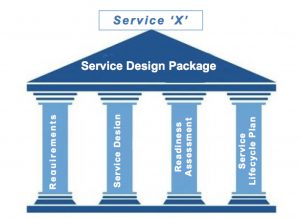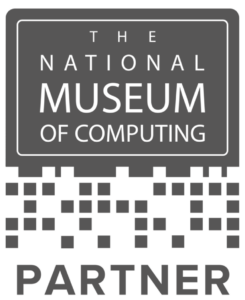For many years in IT service management (ITSM), we’ve been extolling, nay evangelising, about the importance of the Service Design Package (SDP) when delivering and running IT Services in an organisation. With the increased adoption of agile techniques and minimum viable product (MVP) as a “thing”, many are asking whether Service Design Packages are still relevant (if they ever were), and if so how can we make best use of them to enhance service delivery rather than burdening delivery with unnecessary bureaucracy, or worse still the creation of “shelf-ware”.
The Service Design Package
Let us first look at the core elements of a SDP and the value they give in the traditional service delivery model. The SDP consist of four core pillars that underpin the delivery of services, as follows:

The Requirements pillar includes our business goal, service contacts, and service applicability – the why, for whom, and from where we deliver the service. The Service Design pillar is more than the name suggests and covers the functional management, operational, and service level requirements alongside an approved design topology to satisfy all of these requirements. This is the basis for agreement of what is to be delivered. The Readiness Assessment pillar makes sure that the business is prepared financially, technically, and organisationally to receive the service, and is resourced to make the most effective use of the service. In Rugby terms, they’re “eyes up, and hands out ready to receive the ball”. Finally, we have the pillar that represents the Service Lifecycle Plan. This covers, how a service is delivered, and how it will be used throughout its lifecycle.
Agile Service Delivery
Now, let’s think about Agile Service delivery using the principal of MVP. The end customer still has a vision that they want to realise, however rather than spending an inordinate amount of time gathering “finger-in-the-air” requirements and waiting for a single delivery of the final all singing and dancing product – as we did traditionally – the MVP model focusses on validated learning using the least amount of time and money to satisfy a specific customer requirement. Couple this with the fact that Agile is about iterative and incremental delivery, and we can start to see how services can be delivered in this way and how, by adopting this approach, we can ensure that we’re building the right thing by validating the design as each incremental part of the service is delivered, as well as minimising the impact to the customer of receiving the service.
Delivering services in this way can mean that the final service offering may differ quite considerably from that which was originally scoped, having been through numerous iterations and requirements reviews before the whole service is finally provisioned. So how are we expected to record this build journey so that the service offering is supportable? We do this simply by ensuring that all design features, changes in scope and/or functionality, and agreed delivery milestones and accepted elements of the service are fully documented in parallel with the incremental delivery of the service.
Put simply…
Delivery of services in the Agile age does not negate the need for a SDP, but in fact, due to the evolutionary nature of services being delivered in this way, the need for a comprehensive source of knowledge, detailing what was, what is, and what is to be for the service continues to grow. And, as demand for this information grows, the requirement to provide it in a useful and usable form will grow also. This demand is not going to diminish as we move further in to the digital age, and indeed new sub sets of data or information may be asked for in the support of service delivery, and the logical place for all of this remains the SDP. In conclusion, as ITSM develops and matures through new technologies, processes, and frameworks so does the relevance of the Service Design Package. The Service Design Package is just one of a range of tools available to Service Level Managers and its importance cannot be underplayed. Join us at our session to explore the challenges currently being faced in Service Level Management (SLM), and what tools and approaches we can use to address them in the digital age.
Join me at the itSMF UK Annual Conference
Interested in learning more? At the ITSM17 conference I’ll be exploring the rise of Digital and Enterprise Service Management and how Service Level Management needs to evolve to meet the changing needs of the Digital Age.
There is a growing trend of organisations changing their focus, from products to services, even in the most traditional of manufacturing companies. To be successful, they’ll need to start viewing the supply of a product as the result of a combination of processes and services, not as the creation of a specific item. This is especially true for digital products and services where often the final consumed “product” is nebulous. In my presentation, I’ll examine the traditional model and focus of SLM; and question whether it’s still relevant, and what new elements need to be considered to ensure that the function and the service as a whole deliver business value. I hope to see you there.

Anthony Oxley
An experienced ITIL v3 qualified Service Design and Transition Manager with over 25 years of IT Service Management and IT Operations experience in the worlds of Academia, SMB, and large corporate organisations. Anthony comes from a technical and customer orientated background which gives him a unique perspective on Service delivery and acceptance.
Chair of the ITSMF Service Level Management Special Interest Group (SIG), and a member of the Service Transition SIG working party, Anthony regularly presents at local, regional, and national ITSMF events. He regularly broadcasts on BrightTalk summits in the areas of Service Integration and Management; Service Level Management; Change and Release Management; Configuration Management; and, Service Design Packages. Anthony also co-authored an ITSMF Service Level Management publication, as a Service Design Package subject matter expert.


